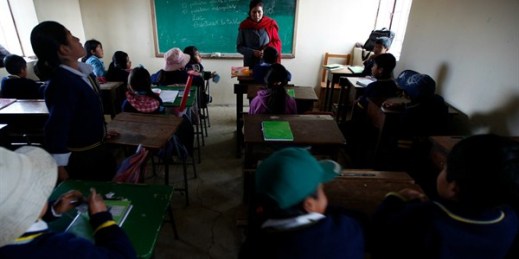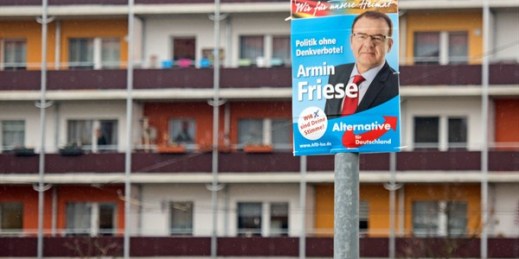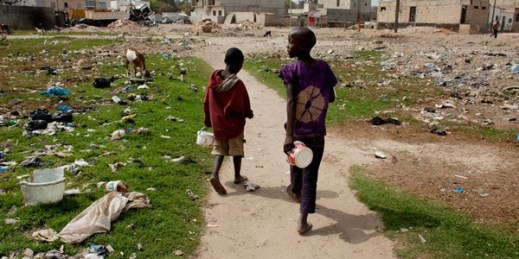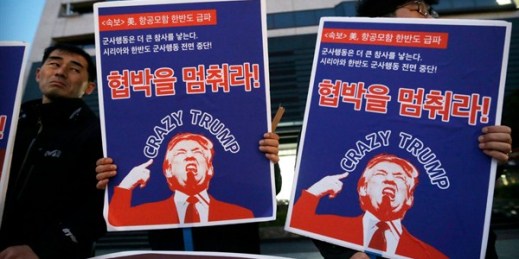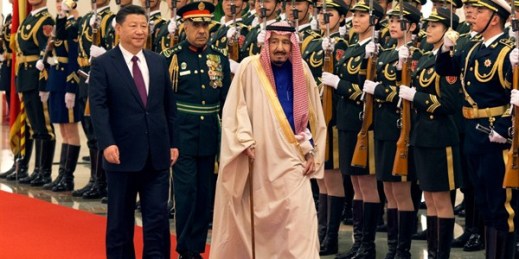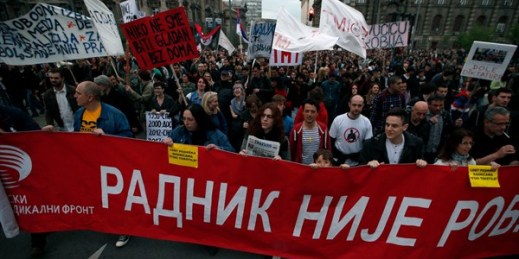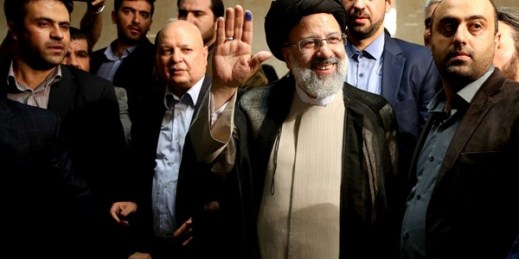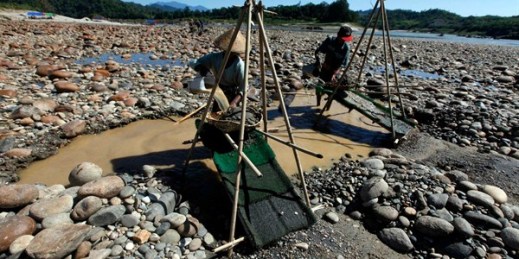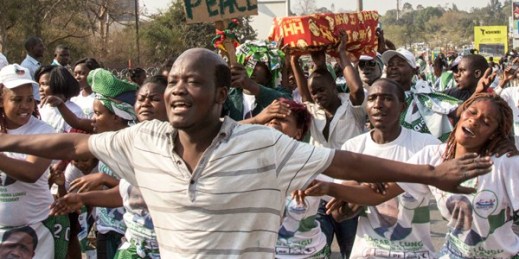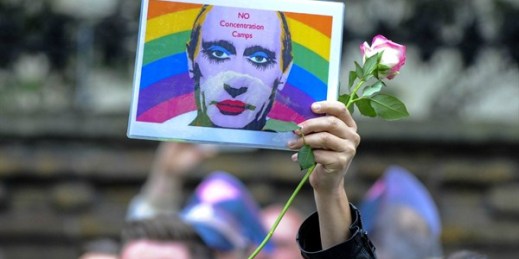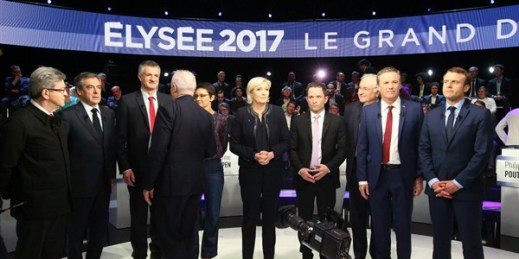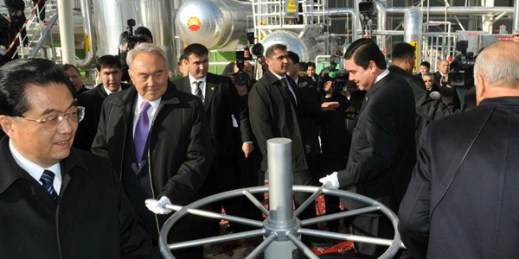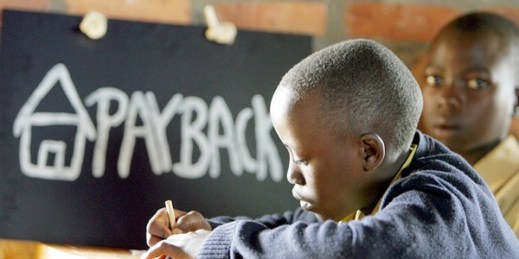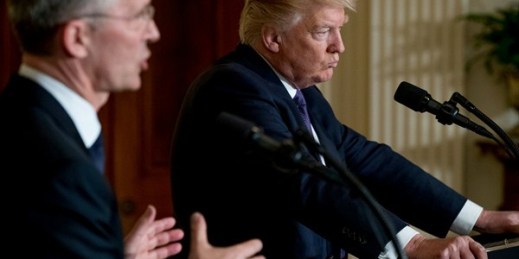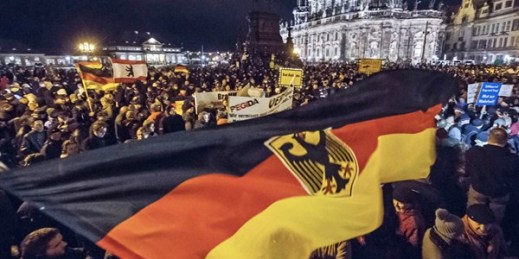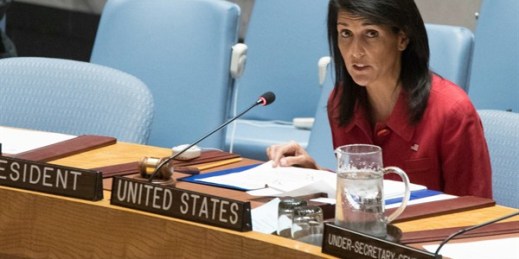
Busy and serious people know only two types of working lunch. There are pleasant but time-consuming lunches they would prefer to skip, and then there are tedious ones they desperately wish to avoid. Today, ambassadors serving on the U.N. Security Council will endure a third category of business luncheon: One that will at best be eventful but nerve-rattling, and at worst could hasten the collapse of international diplomacy. The council is visiting Washington, where it will lunch with U.S. President Donald Trump. What could possibly go wrong? The U.S. has held the rotating presidency of the Security Council in April, […]

